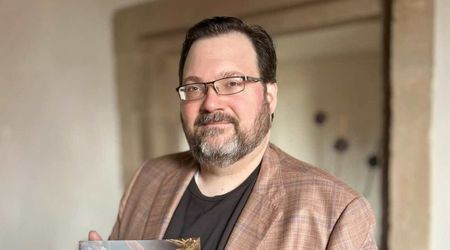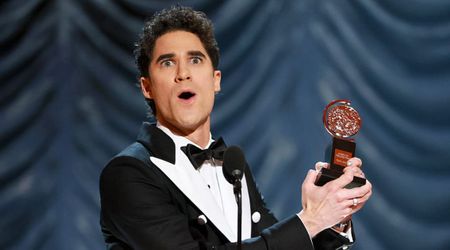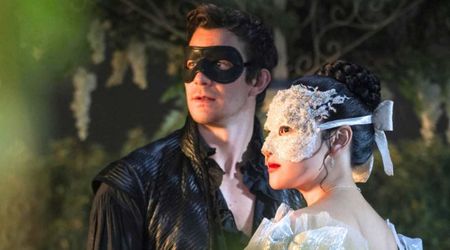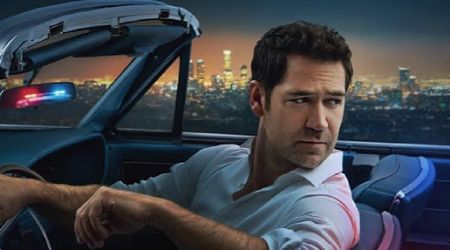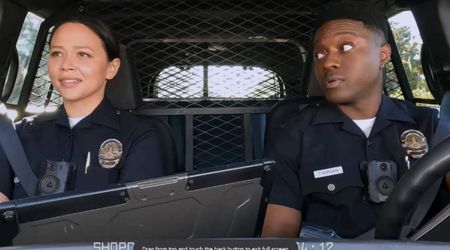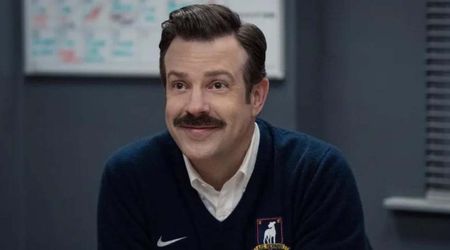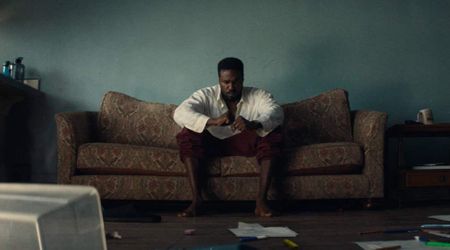'The Salisbury Poisonings': Anne-Marie Duff and Saul Dibb hail Covid-19 first respondents through protaganists

Of late, empty streets, hazmat suits, sealing and securing of buildings and public spaces and ambulances taking over the roads is not a frightening sight anymore. After several months of lockdown, the world has gotten quite used to life in the times of Coronavirus. Add to that the feeling of dread, anxiety and fear.
But when Anne-Marie Duff, Rafe Spall, Annabel Scholey, MyAnna Buring and Darren Boyd shot 'The Salisbury Poisonings' with Saul Dibb from a script from Adam Patterson and Declan Lawn, they had no idea that reality would mirror this scene quite out of a disaster movie. "We went from filming with actors, wearing hazmat suits to me walking down the street to the shop, seeing people in local houses, wearing hazmat suits," actress Anne-Marie Duff tells MEA WorldWide (MEAWW) in an exclusive interview just ahead of the release of the show for US audiences.
'The Salisbury Poisonings' is a series that is rare to come by. The BBC series is a gritty fact-based story about the 2018 Novichok poisonings in the small cathedral town of Salisbury and the subsequent poisonings with the same nerve agent months later in Amesbury. Sergei Skripal and his daughter Yulia were discovered foaming at the mouth on a park bench. Soon enough, their poisoning had caught the entire town and its residents hostage.

At the centre of the story is Tracy Daszkiewicz, played by Anne-Marie Duff, who races against time and hope to contain the contamination in the town. The former director of Public Health and Safety takes over the case early on, but realizes the gravity of the situation only after the details are out.
The character is actually a composite of many other people who were also in charge of containing the infection. The series shows Tracy starting work without any faith in herself. She returns home and rues to her husband that she doesn't have the experience to deal with something as grave as this. Fast forward to the end of the series when over dinner with her family, she is applauded for being a hero.
"She realised that it didn't matter how frightened she was, she had to step up," Duff says. Tracy goes from doubting herself to putting her faith in the public system and the local people and eventually succeeding in averting the crisis in time. Adding that it is exactly what many people are doing right now in real-time, she adds, "Her (Tracy's) background has been social work. So she is someone who has always served people. This is why she isn't comfortable with the idea of being a hero — she wasn't doing social work for the sake of that."

"People who go into that line of work they do are not glory seekers. That's not the reason they do it or they would do a different job. There is great humility and modesty to people who all prepared to walk into a building on fire or who are prepared to put the hand inside someone's stomach, or go down a sewer to find if there's the water has been contaminated. It just reminds us that the real rewards aren't superficial, they are something cellular — something to do with being true to the connection with other human beings. So it feels strange to them to be recognized for doing something that they just feel they should do," she explains.
Outside reel-life, while the world applauded and cheered for public health workers every day during the lockdown in early 2020, heroism is an uncomfortable medal for them to brave around their necks. This is also the situation with Nick Bailey in 'The Salisbury Poisonings'. Bailey, played by Rafe Spall, is one of the first respondents on the scene of the crime and happens to infect himself. While he recovers sometime later, his return to the police force dredges up his memories of the crisis. And while his peers and neighbours cheer for him, he can't help but feel guilt.
"They're both humble people who have sought out in their jobs a form of public service," director Saul Dibb tells MEA WorldWide (MEAWW) in an interview. "So they have already decided what they're doing is a public service and don't feel it right to consider themselves that (heroes), but we can."
He also points out to the real-life heroes during the Covid-19 pandemic — doctors and first responders — who haven't painted themselves as heroes. "They have nobly said the opposite — that they're doing their job."
'The Salisbury Poisonings' is currently streaming on AMC+.

